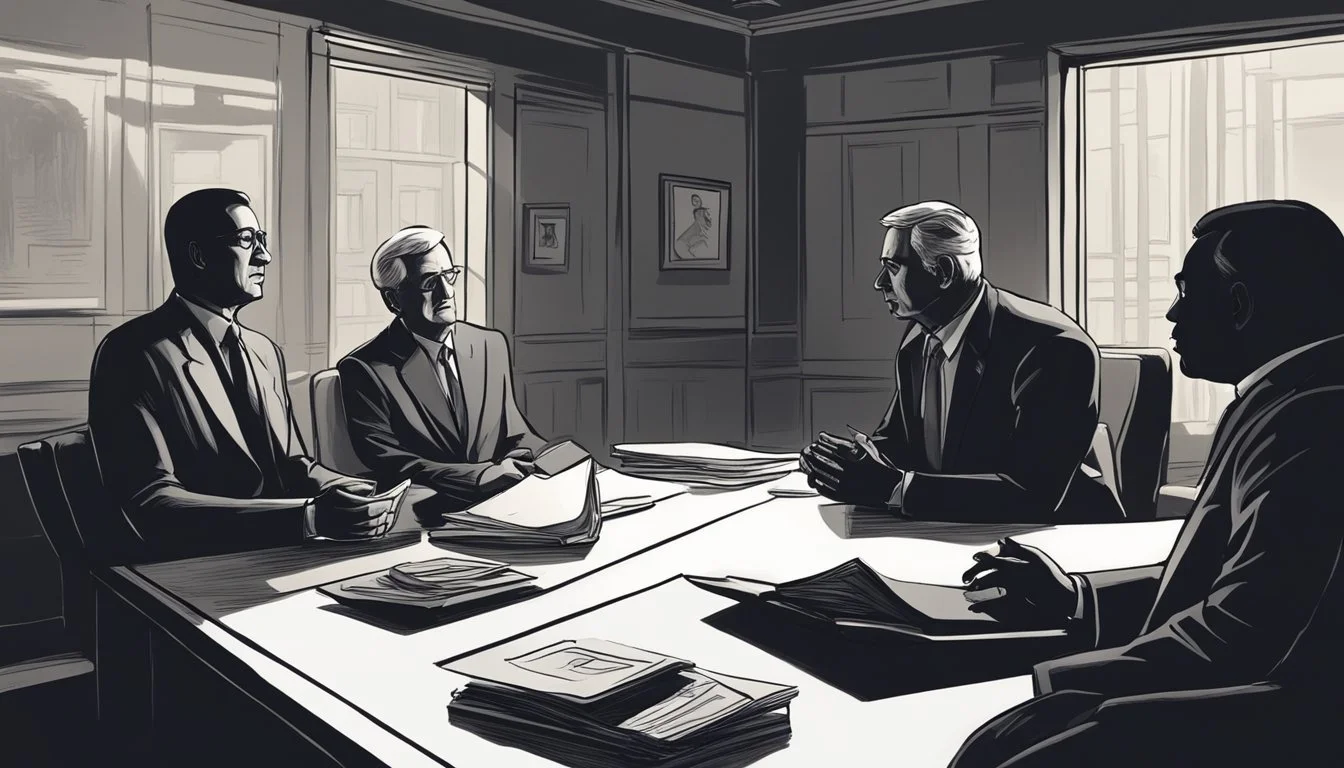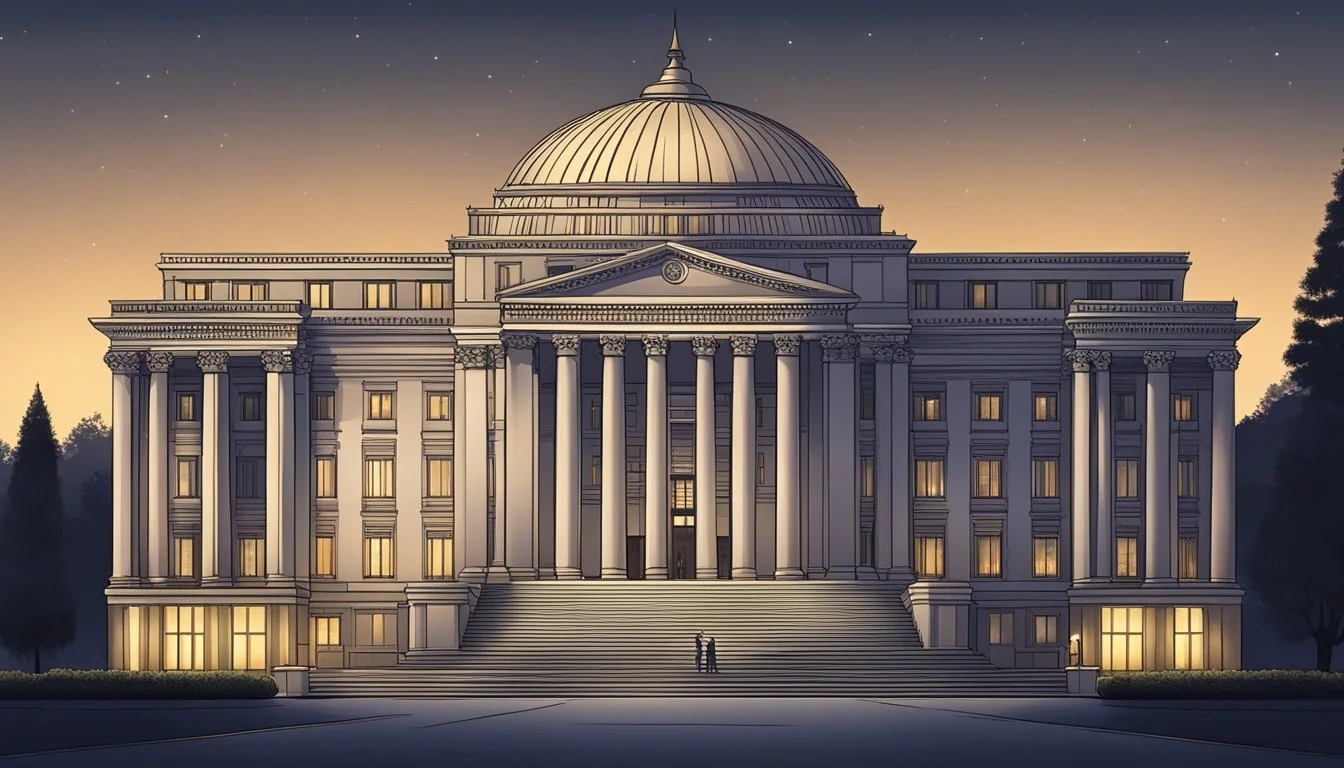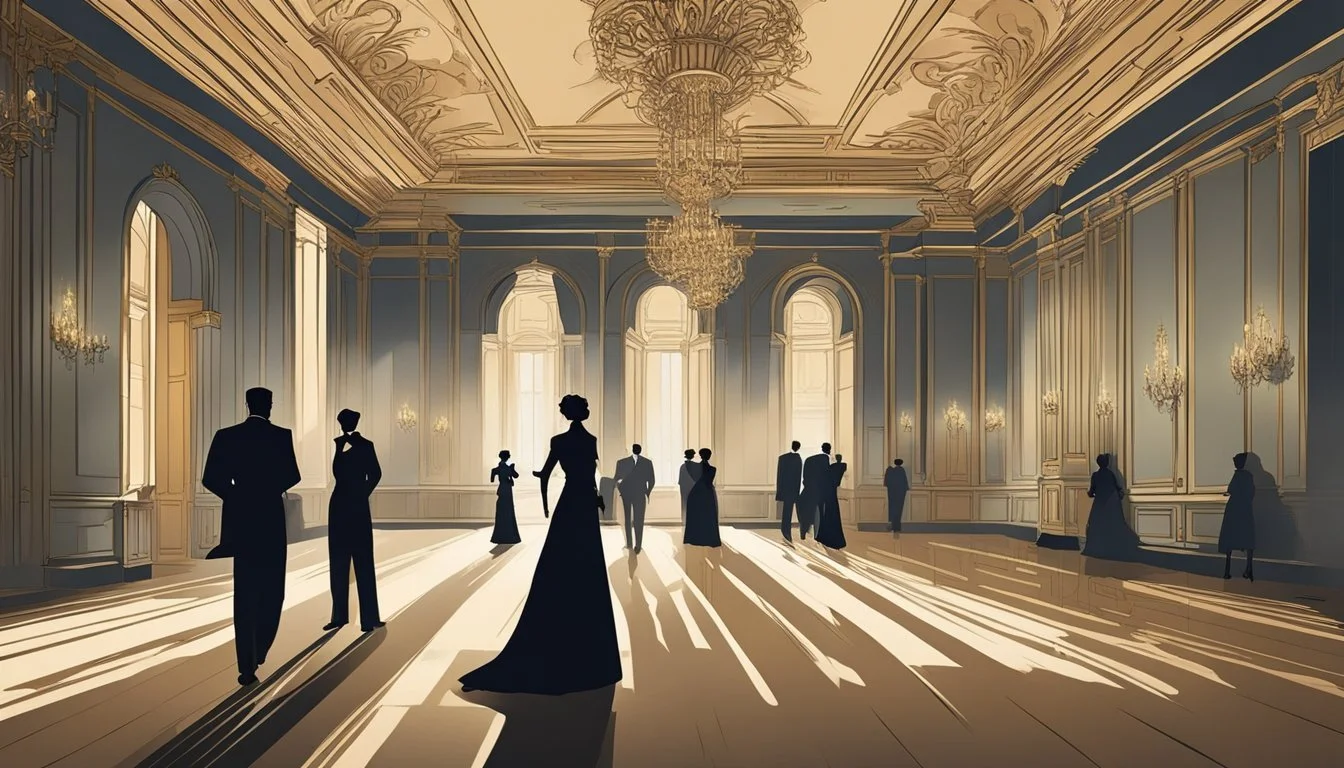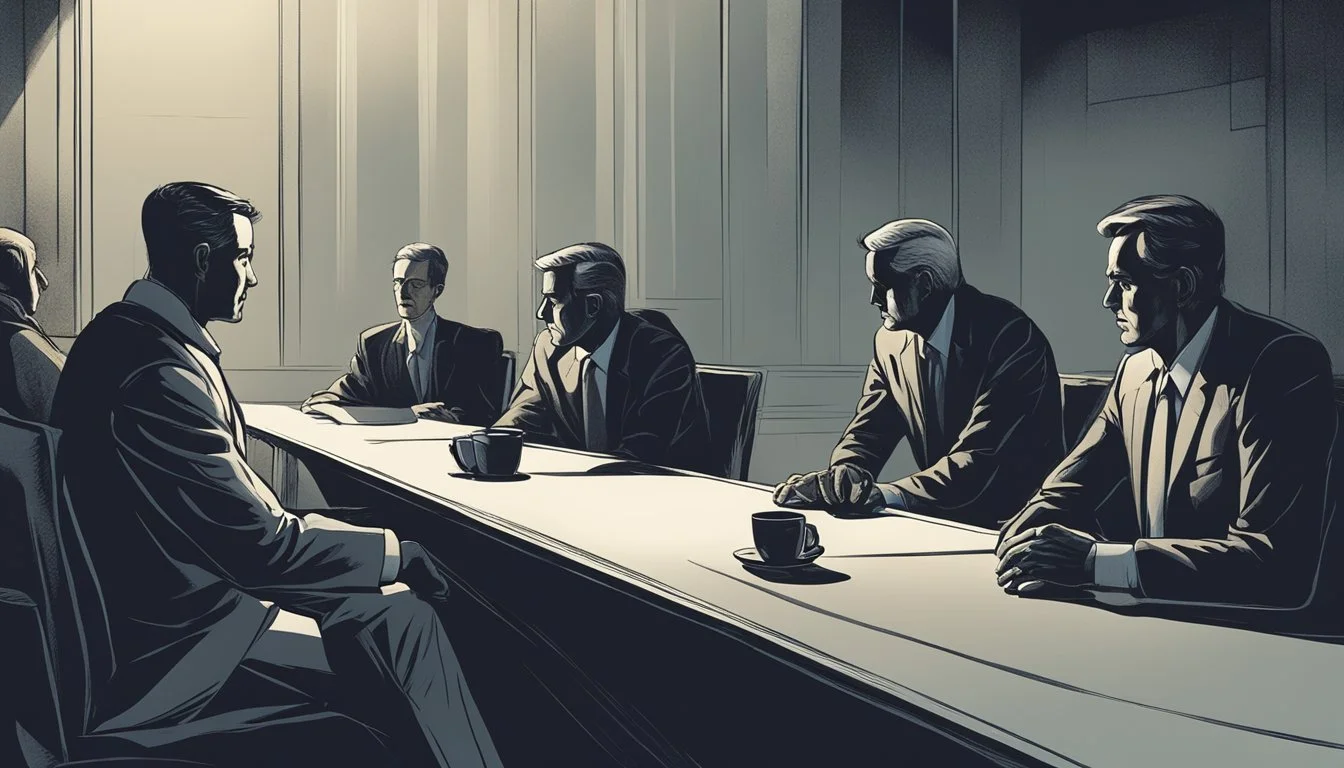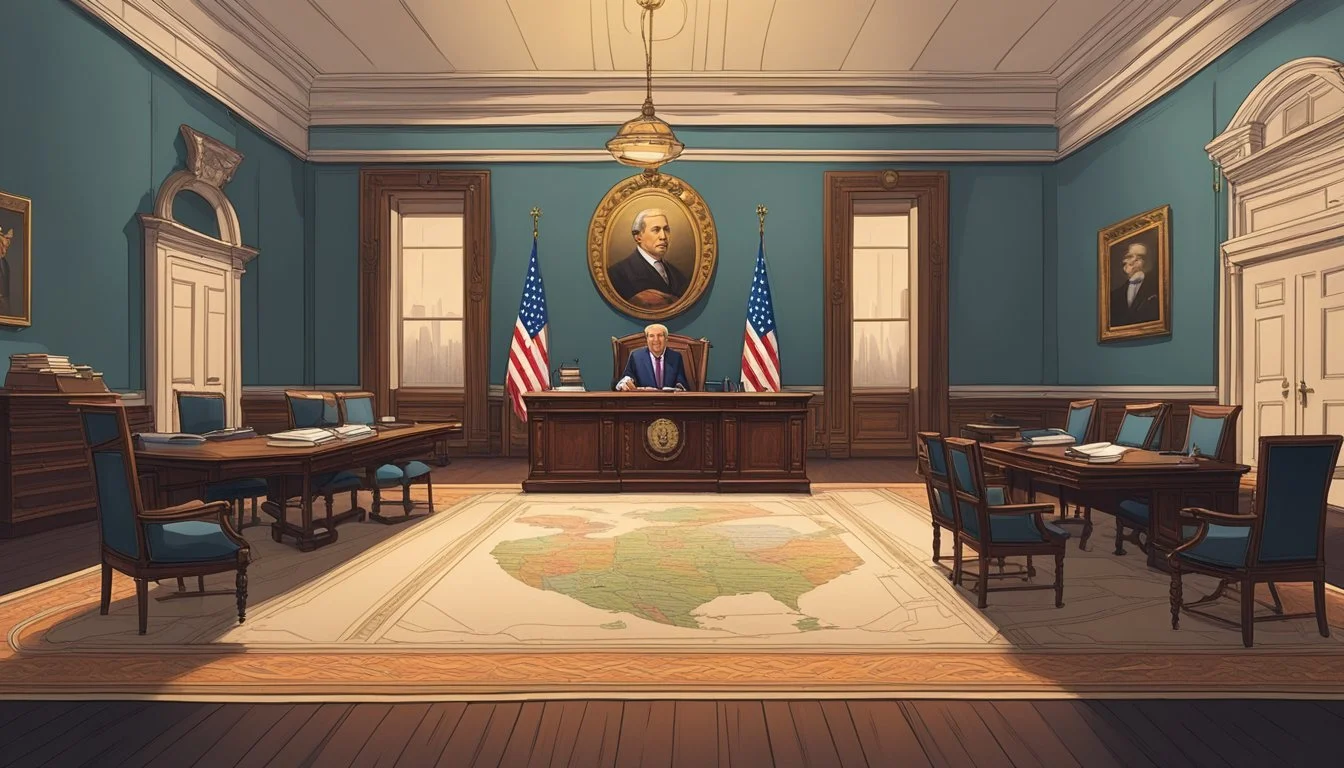The Night Agent's Portrayal of Political Power Dynamics: A Compelling Examination of Washington's Inner Workings
"The Night Agent" has captivated audiences with its gripping portrayal of political power dynamics in the world of espionage. This Netflix series offers a nuanced look at government corruption and the shadowy decisions made by politicians and intelligence agencies.
The show depicts a complex web of power struggles where ordinary citizens find themselves caught in the crosshairs of high-stakes political maneuvering. Female characters break traditional spy thriller stereotypes, emerging as strong and capable agents in their own right.
"The Night Agent" challenges viewers' perceptions of political ethics and family loyalties, weaving these themes into a thrilling narrative. By exploring the intersection of geopolitical intrigue and personal relationships, the series provides a fresh take on the spy thriller genre that has resonated with fans worldwide.
The Concept of 'The Night Agent'
'The Night Agent' is a political thriller that blends high-stakes espionage with intricate power dynamics in Washington D.C. The series introduces viewers to a covert FBI program and explores themes of loyalty, corruption, and national security.
Adaptation from the Novel by Matthew Quirk
'The Night Agent' is based on Matthew Quirk's novel of the same name. Netflix adapted the book into a television series, expanding on the original narrative. The adaptation retains the core premise of a low-level FBI agent thrust into a complex conspiracy.
Quirk's novel provided a foundation for the show's exploration of political intrigue and clandestine operations. The series creators built upon this framework, developing characters and plotlines to suit the television format.
Series Synopsis
The show centers on Peter Sutherland, an FBI agent assigned to a secretive role in the White House. His job involves monitoring an emergency phone line that rarely rings. When it finally does, Peter is catapulted into a dangerous world of espionage and betrayal.
Rose Larkin, a young tech CEO, becomes entangled in the plot after seeking help through the emergency line. Together, Peter and Rose navigate a web of deceit involving high-ranking government officials and foreign operatives.
The series portrays the Night Action program as a covert FBI initiative, though it's important to note this is a fictional element. The show uses this concept to explore the hidden layers of power within the U.S. government.
Characters and Casting
The Night Agent features a diverse cast of characters that bring the political thriller to life. Key players navigate complex power dynamics and personal conflicts as the plot unfolds.
Peter Sutherland's Character Arc
Peter Sutherland, portrayed by Gabriel Basso, starts as a low-level FBI agent who becomes entangled in a high-stakes conspiracy. Basso's performance captures Peter's evolution from an idealistic rookie to a more seasoned operative.
Peter's journey is marked by moral dilemmas and personal growth. He grapples with trust issues and the weight of his family's legacy in law enforcement.
As the series progresses, Peter's skills and determination are put to the test. He faces dangerous situations that challenge his beliefs and loyalties.
Rose Larkin's Role in the Series
Luciane Buchanan brings Rose Larkin to life, a tech CEO caught in the crosshairs of a political conspiracy. Rose's character adds depth to the plot with her technical expertise and resourcefulness.
Her partnership with Peter develops into a crucial alliance. Together, they navigate the treacherous waters of Washington politics and covert operations.
Rose's background in technology provides a modern edge to the traditional spy thriller elements. Her character highlights the intersection of tech and national security.
Vice President Ashley Redfield's Ambitions
Diane Farr portrays Vice President Ashley Redfield, a character driven by political ambition. Redfield's actions and decisions play a significant role in shaping the show's power dynamics.
Her character embodies the complexities of high-level political maneuvering. Redfield's motivations and alliances shift as she navigates the dangerous landscape of Washington politics.
Farr's performance brings nuance to Redfield's character, showcasing the pressures and ethical dilemmas faced by those in positions of power.
Other Key Players
Omar Zadar, played by Hong Chau, emerges as a formidable antagonist. Chau's portrayal adds layers of intrigue to the series' central conflict.
Chelsea Arrington, another pivotal character, contributes to the intricate web of relationships and loyalties. Her role intersects with the main characters in unexpected ways.
Peter Sutherland Sr.'s legacy looms large over the story, influencing his son's choices and the perceptions of others in the political sphere.
These supporting characters enrich the narrative, creating a complex tapestry of motivations and alliances that drive the plot forward.
Themes of Political Intrigue
The Night Agent expertly weaves complex political power dynamics throughout its narrative. The series explores the shadowy world of government conspiracies, loyalty conflicts, and high-stakes national security threats.
Conspiracy and Paranoia Within the Government
The show depicts a pervasive atmosphere of suspicion in Washington D.C. Characters constantly question who they can trust. Secret meetings and covert communications fuel paranoia among officials.
The White House Chief of Staff emerges as a key player in the political web. Their actions blur the line between protecting national interests and pursuing personal agendas.
Government secrets become powerful currency. Information is weaponized, leading to tense standoffs between agencies and individuals.
Treachery and Loyalty Among Officials
Betrayal lurks around every corner in The Night Agent's political landscape. High-ranking officials engage in backdoor deals and clandestine alliances.
The concept of the double agent takes center stage. Characters struggle with divided loyalties, torn between duty and personal beliefs.
Trust becomes a rare commodity. Even longstanding relationships are tested as characters navigate treacherous political waters.
Assassination Attempts and National Security
The series ratchets up tension with multiple assassination plots. These threats target key political figures, sending shockwaves through the government.
National security hangs in the balance. The protagonists race against time to uncover conspiracies before they can be executed.
The global implications of these threats are explored. International relations become strained as characters work to prevent catastrophic outcomes.
Political conspiracies in The Night Agent often have far-reaching consequences. The show illustrates how actions at the highest levels of government can impact ordinary citizens.
Representation of Political Institutions
The Night Agent offers a nuanced portrayal of key political institutions, showcasing the inner workings of the White House, FBI, and Secret Service. It explores the complex dynamics and security measures that shape these organizations.
Depiction of the White House
The series presents the White House as a hub of political activity and decision-making. It showcases the Oval Office, where critical conversations unfold between the President and advisors. The West Wing bustles with staffers navigating policy challenges and crises.
Meetings in the Situation Room highlight the gravity of national security issues. The show depicts the hierarchical structure, with the Chief of Staff playing a pivotal role in managing information flow and access to the President.
The White House's public-facing aspects are also explored, including press briefings and official statements that shape public perception of government actions.
The FBI and Secret Service Perspective
The Night Agent offers insight into the FBI's investigative processes and interagency cooperation. Agents are shown conducting surveillance, analyzing evidence, and pursuing leads related to potential threats.
The series highlights the tension between following protocol and taking necessary risks to protect national security. It portrays the FBI's use of technology and data analysis in solving complex cases.
The Secret Service is depicted as a highly trained and vigilant force. Agents are shown coordinating protective details, conducting threat assessments, and responding to potential security breaches.
The show explores the personal toll of these high-stakes roles on agents' lives and relationships.
Marine One and Presidential Security
Marine One, the President's helicopter, is portrayed as a critical component of presidential travel and security. The series shows the meticulous planning involved in presidential movements, including route selection and security sweeps.
The show depicts the coordination between Marine Corps pilots, Secret Service agents, and White House staff to ensure the President's safety during transit. It highlights the advanced communication systems and defensive capabilities of Marine One.
Security protocols for boarding and disembarking are shown in detail, emphasizing the constant vigilance required to protect the Commander-in-Chief. The series also touches on the symbolic importance of Marine One as a representation of presidential power and authority.
Production and Development
The Night Agent's production involved careful planning and execution to bring the political thriller to life. Key decisions around creative vision, filming locations, and visual style shaped the show's distinctive atmosphere.
Shawn Ryan's Vision for the Series
Shawn Ryan, creator of The Night Agent, drew on his experience crafting intense dramas like The Shield to develop the show's taut, suspenseful tone. He aimed to portray a realistic view of Washington politics and intelligence work, eschewing glamorized depictions.
Ryan focused on grounding the series in believable scenarios and complex characters. He worked closely with the writing team to craft intricate plot twists while maintaining plausibility. The creator also emphasized building tension through pacing and atmosphere rather than relying solely on action sequences.
Filming Locations and Setting
The Night Agent utilized both studio sets and on-location shooting to create its version of Washington D.C. Key scenes were filmed in actual government buildings and iconic D.C. landmarks to lend authenticity.
The production team constructed detailed replicas of White House interiors on soundstages. These sets allowed for greater flexibility in filming tense conversations and covert meetings. Location scouts identified lesser-known D.C. areas to showcase a grittier side of the city.
Careful cinematography and lighting choices helped establish the show's shadowy, high-stakes atmosphere. Night scenes and dimly lit interiors reinforced themes of secrecy and hidden agendas.
The Night Agent's Action Sequences
The Night Agent blends intense action with high-stakes political intrigue. Its action sequences drive the plot forward while keeping viewers on the edge of their seats.
Night Action and Combat Scenes
Night Action serves as a critical plot device, triggering intense combat scenes. When agents call the emergency line, it signals imminent danger and sets off a chain of rapid-fire events.
Peter Sutherland's transformation from desk agent to field operative showcases realistic hand-to-hand combat. His fights feel raw and desperate, emphasizing his inexperience and vulnerability.
The series features tense shootouts in urban environments. These scenes use tight framing and quick cuts to heighten the sense of chaos and danger.
Chases through DC streets and metro tunnels add dynamism to the action. The familiar settings lend authenticity while serving as obstacles for characters to navigate.
High-Stakes Scenarios and Plot Twists
The DC Metro bombing establishes the series' high stakes from the outset. This terrorist attack sets a tone of constant threat and paranoia that permeates later action sequences.
As the mystery unfolds, action scenes reveal key plot twists. Betrayals and double-crosses often come to light during tense confrontations or pursuits.
The series interweaves political drama with its action thriller elements. Boardroom tensions and backroom deals can explode into violence at any moment.
Rose Larkin's cybersecurity expertise adds a modern edge to traditional spy craft. Her skills create unique action scenarios involving hacking and digital sabotage.
Reception and Audience Impact
The Night Agent garnered significant attention from viewers and critics alike. Its portrayal of political power dynamics resonated with audiences, sparking discussions and anticipation for future storylines.
Critical Response to Season 1
Season 1 of The Night Agent received largely positive reviews. Critics praised the show's taut pacing and realistic depiction of Washington's political underbelly. The series' nuanced approach to espionage and government corruption earned particular acclaim.
Many reviewers highlighted Gabriel Basso's compelling performance as Peter Sutherland. His portrayal of an idealistic FBI agent navigating complex power structures struck a chord with viewers.
The season finale (Episode 10) left audiences buzzing. Its high-stakes conclusion and unexpected twists set social media ablaze with theories and discussions.
Anticipation for Season 2
Netflix's swift renewal of The Night Agent for a second season fueled fan excitement. Viewers eagerly speculate about potential plot developments and character arcs.
Online forums teem with theories about how the show will further explore political power dynamics. Fans express keen interest in seeing how Peter's role might evolve following the events of Season 1.
Many hope Season 2 will delve deeper into the shadowy networks of influence within Washington. The prospect of new political intrigues and alliances has generated significant buzz among the show's growing fanbase.
Real-world Implications
"The Night Agent" offers a compelling portrayal of political power dynamics that resonates with real-world concerns. Its depiction of government operations and national security threats has sparked discussions about the inner workings of U.S. institutions.
The Show's Influence on Political Thriller Genre
"The Night Agent" has redefined expectations for political thrillers on television. Its realistic approach to depicting intelligence work has set a new standard for authenticity in the genre.
The series emphasizes the mundane aspects of government operations, contrasting with the glamorized portrayals often seen in spy films. This attention to detail has influenced other productions to adopt a more grounded approach.
By focusing on lower-level operatives, the show has broadened the scope of political thrillers. It highlights the crucial roles played by individuals who aren't in the spotlight but significantly impact national security.
Public Perception of US Political Dynamics
The series has shaped public understanding of power structures within the U.S. government. It exposes viewers to the complex web of relationships and competing interests that influence decision-making at high levels.
"The Night Agent" depicts the tension between elected officials and career bureaucrats, illuminating the checks and balances within the system. This has led to increased public discourse about the distribution of power in Washington.
The show's portrayal of internal conflicts and ethical dilemmas faced by government employees has humanized these institutions. It has prompted viewers to consider the challenges of maintaining national security while upholding democratic values.
Legal and Ethical Considerations
The Night Agent grapples with complex legal and ethical issues surrounding political power and espionage. The show explores the fine line between national security and individual rights.
Espionage and the Legal System
The series depicts the intricate legal frameworks governing espionage activities. Foreign Agent registration laws play a key role, highlighting the legal obligations of individuals working on behalf of foreign governments.
The show portrays the challenges of prosecuting espionage cases in criminal trials. It illustrates how classified information and national security concerns can complicate legal proceedings.
Surveillance laws and privacy rights feature prominently. The Night Agent examines the tension between intelligence gathering and civil liberties protections.
Ethical Representation of Political Figures
The Night Agent offers a nuanced portrayal of political figures grappling with ethical dilemmas. It shows how leaders balance national interests against moral considerations.
The series explores the ethical implications of using deception and manipulation in politics. Characters face difficult choices between personal integrity and political expediency.
Conflicts of interest receive attention, with the show depicting how personal relationships can influence political decision-making. The ethical duties of public officials to serve the greater good are a recurring theme.
Character Development and Relationships
The Night Agent excels at crafting complex characters and intricate relationships. Through tense situations and high-stakes encounters, the show reveals the true nature of its key players.
Peter and Rose's Evolving Dynamics
Peter Sutherland and Rose Larkin form the core relationship of the series. Their partnership begins as a professional necessity but grows into a deep bond of trust. Peter's dedication to his duty clashes with his growing feelings for Rose, creating internal conflict. Rose, initially skeptical of Peter, comes to rely on his protection and expertise.
Their shared experiences facing danger forge a strong connection. Quiet moments between action sequences allow for vulnerable conversations, revealing their fears and motivations. This gradual development of intimacy adds depth to their characters and raises the emotional stakes of the plot.
Alliances and Conflicts
The political landscape of The Night Agent is rife with shifting alliances and hidden agendas. Vice President Diane Farr's relationship with her daughter Maddie highlights the personal cost of power. The Chief of Staff's loyalty to President Michelle Travers is tested as the conspiracy unfolds.
Peter's interactions with senior officials reveal the complex web of trust and suspicion within the government. His father's legacy as a Secret Service agent adds another layer to these dynamics. Chelsea, as a tech entrepreneur, brings an outsider's perspective to the inner workings of Washington.
Assassins lurking in the shadows force characters to question who they can truly rely on. The Oval Office becomes a stage for power plays and tense confrontations, shaping the relationships between key figures.




